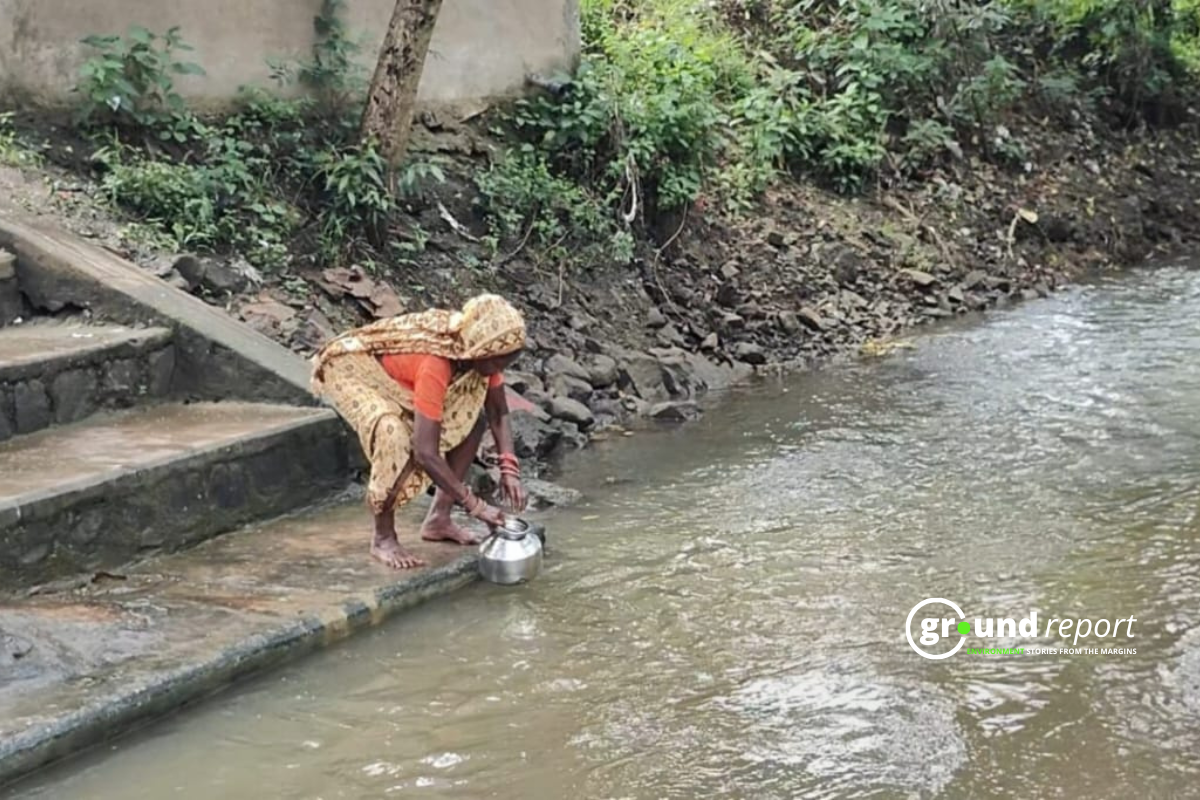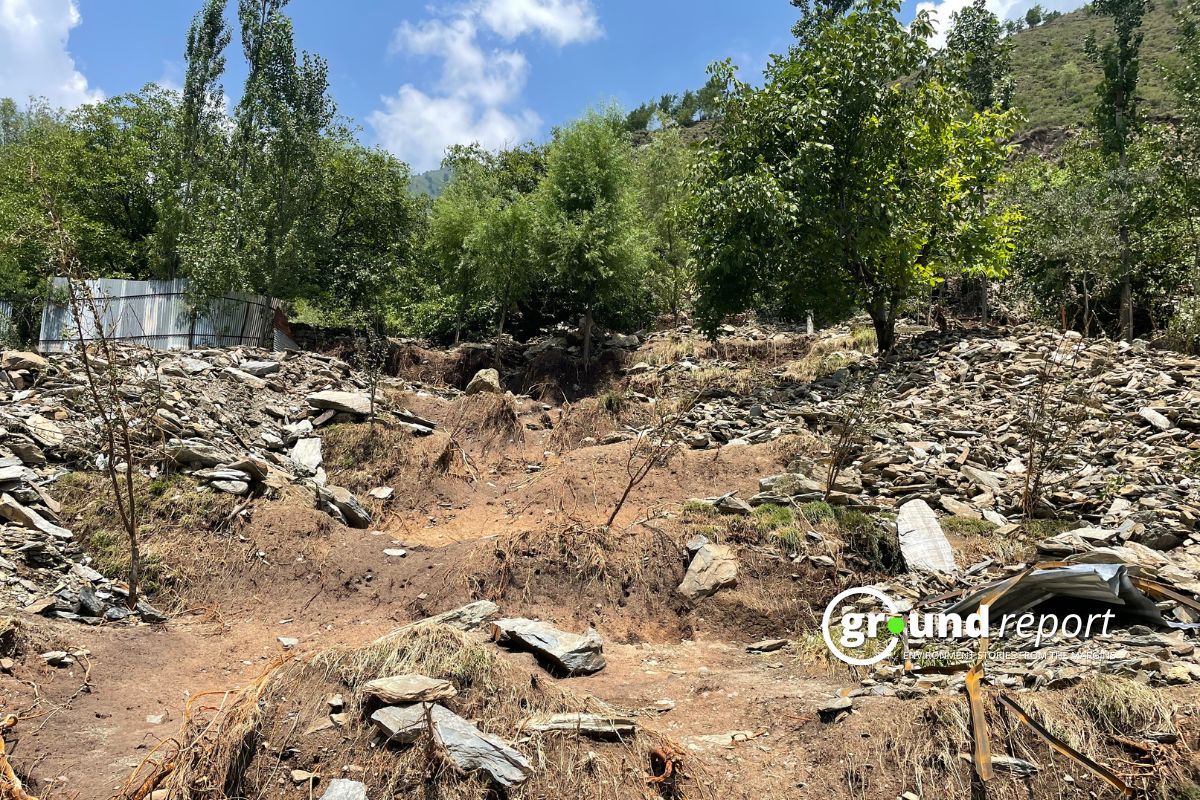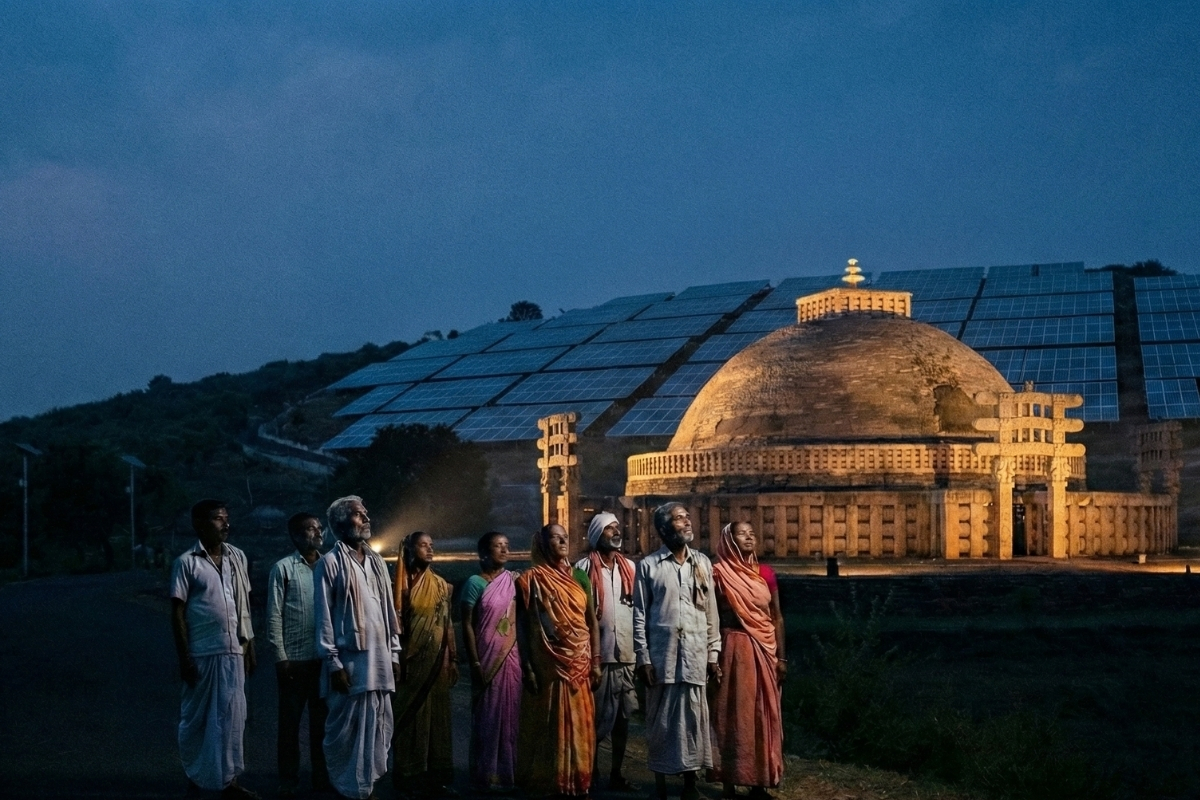For the past two months, people from Kargil and Leh in Ladakh have been gathering at the Martyrs Memorial Park in Leh. They have two main goals: to raise awareness about the serious environmental problems Ladakh is facing and to ask the Indian government to give them more control over protecting their region’s resources.
A local graduate student from Leh speaking to Ground Report said “Our demands are clear and just. In 2019, the government made promises to us in its manifesto”.
She added, “We seek the implementation of the Sixth Schedule, ensuring the protection of Ladakh’s environment, statehood with our legislative assembly, representation in both the Lok Sabha and Rajya Sabha, job opportunities, safeguarding our land and resources, and dedicated parliamentary seats for Leh and Kargil. These aren’t mere requests; they are our rights, essential for the prosperity and preservation of our beloved Ladakh.”
Ladakh has always depended on melting snow and ice for water because it’s in the shadow of the Himalayas. But recently, the glaciers have been melting fast, snowfall has become unpredictable, and there have been dangerous floods from bursting glacial lakes.
In Leh, hundreds of people marched together, shouting for Ladakh to become a state, to have legal protections, and to get separate seats in Parliament for Leh and Kargil. They want their rights respected, not charity.
Stanzin Dolma, another student at the protesting site speaking to Ground Report said,
“Many of us, who study in colleges nearby, come back here after classes. We sit together, not just to finish assignments, but to fight for our home and for our rights. Ladakh is facing big problems, like melting glaciers, unpredictable rivers and much more issues when it comes to environment. But we’re not just watching. We’re standing up, demanding our voices be heard. We want Ladakh to be a state, with its own rules to protect our land and water”.
She further added, “We’re not asking for handouts; we’re asking for what’s rightfully ours. Every night, we stay here, determined. We won’t leave until our leaders listen and act. Together, with the Leh Apex Body and the Kargil Democratic Alliance, we’re stronger. We’re fighting for a better future, where Ladakh thrives and our children can live safely.”Leaders from both districts have joined together to form the Leh Apex Body and the Kargil Democratic Alliance, to keep pushing for what the people need.
Before 2019, Article 370 of the Indian constitution stopped people from outside Ladakh from moving there or starting businesses. Jobs and scholarships were only for people who were from Ladakh originally.
Tenzin Namgyal, another college-going student speaking to Ground Report said,
“As a proud son of Leh, I stand amidst the echoes of our mountains, demanding not just recognition, but empowerment. Our glaciers are melting, our rivers are unpredictable, and our future hangs precariously. It’s time for Ladakh to rise, not as a mere region, but as a state, with the power to safeguard our resources.”
Ladakh’s distinct demands for autonomy
After Article 370 was repealed in 2019, Ladakh became a separate Union Territory (UT) without its legislature. Ladakh doesn’t have one unlike other UTs with Legislative Assemblies like New Delhi and Pondicherry. In response, the people of Kargil and Leh demand inclusion in the Sixth Schedule of India’s Constitution. This would give them similar status to tribal areas in Assam, Meghalaya, Tripura, and Mizoram.
The ongoing “People’s Movement for the 6th Schedule for Ladakh” has four main requests: being included in the Sixth Schedule, regaining statehood, establishing a Public Service Commission, and getting two parliamentary seats, one for Kargil and one for Leh. Being under this Schedule would allow Ladakh to form Autonomous District and Regional Councils (ADCs and ARCs), which could make laws tailored to their ecological and cultural needs, especially regarding land, public health, and agriculture. This is crucial for the largely tribal population of Ladakh, as it would protect them from outside influences and resource exploitation.
Another important demand is the return of statehood. Currently, Ladakh is directly governed by the central government. Previously, Ladakh had Autonomous Hill Development Councils, which oversaw local projects and ensured transparency. However, since becoming a UT, these councils have lost much of their power, leaving the region’s representation limited to one parliamentary seat and two councils per district. This has led to confusion and inefficiency in governance.
The third demand is for a Public Service Commission to ensure fair representation of Ladakhi youth in government jobs, particularly for those from Scheduled Castes and Tribes. Lastly, the movement is asking for two parliamentary seats better to represent the distinct interests of Leh and Kargil districts.
BJP and Ladakh
Since August 2019, Ladakh has posed various challenges for the Bharatiya Janata Party (BJP) government.
One challenge is external and involves geopolitics, especially after the clash between Indian and Chinese soldiers in the Galwan Valley in 2020.
Politically, Ladakh hasn’t been smooth sailing for the BJP either. After the elections for the Ladakh Autonomous Hill Development Council, Leh were announced in September 2020, the People’s Movement for Sixth Schedule for Ladakh, a powerful group, boycotted the polls until their demands were met.
This boycott was embarrassing for the BJP, especially since their local unit also supported it. Soon after, Leh leaders met with Union Home Minister Amit Shah in Delhi.
Recently, Wangchuk finished a 21-day fast, where he only had salt and water. He did this to support Ladakh becoming a state and being included in the Sixth Schedule. He believes this would protect the fragile environment of the region.
Tenzin further added,
“We, the youth of Leh, refuse to be mere spectators to the changing landscape of our homeland. Our voices echo through the valleys, demanding not charity, but rightful representation. Ladakh deserves more than token gestures; it deserves a seat at the table of governance, where decisions about our land, our water, and our future are made.”
Leh’s Apex Body representatives have signalled that the ongoing protest in Ladakh could extend beyond initial expectations. Their remarks come as numerous allied organizations from across India rally in support of the movement. Notably, major political entities including the Aam Aadmi Party, the Indian National Congress, and various independent councillors have joined forces, standing in solidarity with the protestors.
Follow Ground Report for Environmental News From India. Connect with us on Facebook, Twitter, Koo App, Instagram, Whatsapp and YouTube. Write us on GReport2018@gmail.com and subscribe our free newsletter.
Don’t forget to check out our climate glossary, it helps in learning difficult environmental terms in simple language.







